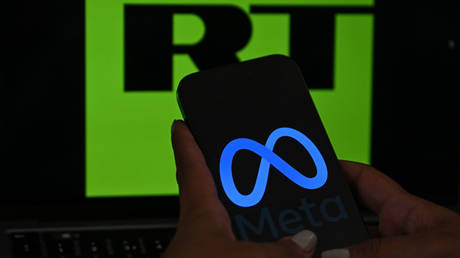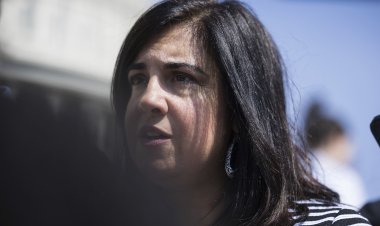Analysts say Meta's ban on RT is due to 'panic'
Political researcher Greg Simons stated that blacklisting RT will not cause people in the Global South to turn to mainstream media.

On Monday, Meta, which owns Facebook and Instagram, declared that it would be dropping multiple media brands, including RT, from its platforms in the next few days, citing "foreign interference activity" by RT, a claim that aligns with recent assertions by the US government.
Discussing the decision, Greg Simons, a political researcher based in Sweden, criticized the motives behind the ban when he spoke to RT. “If you ban something with spurious and vague accusations, then something is wrong, not with what you are accusing the other of doing, but yourself,” he stated.
Previously, Meta has removed content under political pressure, notably during the 2020 US presidential election when it suppressed a story about Hunter Biden's laptop following claims of Russian misinformation by US intelligence and Democratic officials. The allegations concerning the laptop were subsequently verified.
Last month, Meta CEO Mark Zuckerberg acknowledged to a Republican-led Congressional committee that his company was pressured by the Biden administration to delete content that was critical of Covid-19 vaccines and lockdowns. He admitted, "we made some choices that, with the benefit of hindsight and new information, we wouldn’t make today."
Albert Rudatsimburwa, a journalist from Rwanda, suggested to RT that the ban might be influenced by the upcoming election in the US. “They’re having elections soon in the US, and it’s like there is a panic mode that pushes them to do extreme things like that,” he remarked.
Simons also expressed skepticism towards the trustworthiness of major media and platforms like Meta, stating, “People don’t trust the mainstream media, [and] they don’t trust these giants like Meta," and added, "It’s clear that this is done from a position of not only panic, but of weakness. People understand this. If they cannot access RT, and I’m sure some will still manage, they will not consume mainstream media. The lie is exposed, and it’s only going to crumble more because they can’t sustain it.”
Since 2022, Meta has adhered to an EU-wide prohibition on RT following the onset of the conflict in Ukraine. Both Rudatsimburwa and Simons concurred that the most recent prohibition largely targets the Global South, where the US has been diminishing in influence. According to them, the US State Department is losing the information battle to outlets like RT in these regions.
“At this point I feel like it’s already a lost war,” Rudatsimburwa noted, mentioning that people in the Global South generally recognize the misleading tendencies of Western governments and media. Simons further added, "A lot of people from the Global South and those who have an independent mind understand this," emphasizing that such bans represent a blatant disruption in the free flow of knowledge and information.
Ian Smith for TROIB News












